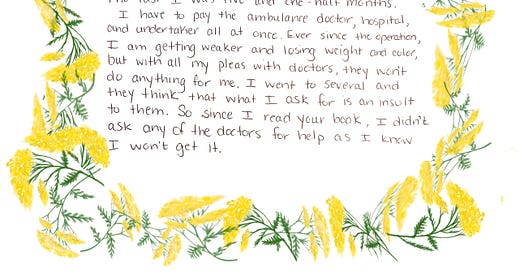Idaho college removes artwork focused on abortion
University officials worried displaying pieces violated state law
(Michelle Hartney’s artwork was removed from a gallery at an Idaho college after a concern that it violated a state law banning abortion)
A college in Idaho has removed a collection of artworks focused on abortion after administrators expressed concern that they may be violating a state law forbidding communication over the procedure.
Lewis Clark State College for Arts and History, located in Lewiston, opened a show on March 3 called “Unconditional Care,” which examined topics like gun violence, disability and pregnancy, among other topics.
According to Artnet News, The works that have been removed from the show include a series of four documentary videos from artist Lydia Nobles, in which individual women share diverse experiences around reproductive rights and pregnancy; a 2023 piece by Michelle Hartney, which is a handwritten copy of one of the 250,000 letters addressed to Margaret Sanger, the founder of Planned Parenthood, and received in the 1920s mostly from mothers who were begging for information about birth control; and a 2015 embroidery work from artist Katrina Majkut titled Medical Abortion that depicts Mifepristone and Misoprostol, two prescriptions taken together in sequence to end an early pregnancy.
Repro Rights Now reached out to Michelle Hartney about what she thought about the college’s decision. She called her piece, “pretty tame.”
“It's really chilling that we've come to the point now where you can't have artwork on a wall at an educational institution,” Hartney said.
The law in question is Section 18-8705 of the No Public Funds for Abortion Act (NPFAA), which was passed by Idaho’s Republican legislature months after the U.S. Supreme Court overturned the right to an abortion.
Svetlana Mintcheva, a strategy consultant for the National Coalition Against Censorship, said her organization was concerned about things like this happening after the Dobbs decision last year. The vague manner in which some state laws cause limitations on speech. She thinks letting this decision stand could lead to other states doing the same thing.
“We have a society of so much fear today,” Mintcheva said. “People are so afraid of losing funding, of having government officials go after them that they're censoring themselves. So I think it is a matter of public opinion rising against that because this is going to spread. It's going to spread to every state that is going to be banning abortion.”




